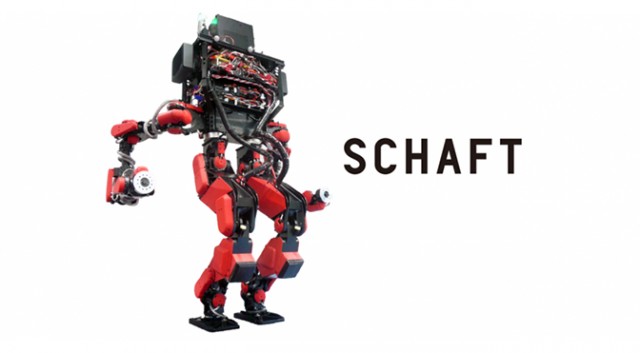After the news that Google pulled its robot Schaft out of a DARPA challenge, it came as no surprise that the search engine giant has decided to pull the plug on the bipedal robot. Schaft was developed specifically to take part in the $2 million DARPA Robotics Challenge, a prize competition funded by the US Defense Advanced Research Projects Agency.
The plan went awry after Schaft unit was bought over by the Mountain View giant in 2013 and Google declined the funding from DARPA since it would have gone against the company’s stance. Consequently, Schaft was withdrawn from the most ambitious robotics challenge and the makers announced that the move would allow them to “focus on the development of the commercial product”.
Schaft is co-founded by Yuto Nakanishi who showed off the low-cost bipedal robot at the New Economy Summit in 2016. The co-founder described the robot as low-cost, low-power helpers that could carry up to 60 kilos and even navigate the rough terrain.
Bidding Adeiu To Schaft
Google shutting down Schaft is a telling comment on the company’s stance on its robotics unit. Earlier this year, we reported how Google sold off its other robotics unit Boston Dynamics. Google had acquired the robotics company in 2013 and the MIT spinoff is known for innovations such as Handle, Big Dog, Atlas and WildCat. The move was reportedly a part of Google’s plan to slim down on the experimental projects. In fact, experts have hinted that Google didn’t know what to do with these remarkable robotics innovations.
Google executive Andy Rubin was primarily responsible for scaling up the robotics business as the search giant wanted to establish itself as a leader in building a bunch of intelligent machines. A report had indicated that the company was scheduled to be sold to SoftBank alongside Boston Dynamics. However, Schaft didn’t make the transition. In addition to this, Rubin’s departure from the company left to a shift in the robotics strategy. Rubin, who led the robotics business, is also known as the creator of the Android operating system.
Earlier in 2016, Google also quietly shelved the robot arm, which was a prototype and failed to pass Larry Page’s toothbrush test. News reports hint Google’s robotics group wanted to sell the arm to warehouse operators and manufacturers, however, it failed at the testing stages. Reportedly, the company built around 50 robotic arms which could lift about 10 pounds each.
Why is Google Abandoning Its Robotics Companies?
- Google invested in robotics companies to strengthen its hardware arm but soon realized that turning these companies into a revenue stream will take a decade.
- Also, robotics doesn’t fit in with Google’s culture which is a leader in software and web-based products.
- There is a difference between hardware startups and software oriented robotic startups that focus on AI development and don’t build hardware in-house.
- West Coast vs. Japan / East coast: Most robotics startups from Japan are not able to fit in with the West Coast culture. Meanwhile, Tokyo-based SoftBank, which has sold Pepper robots and bought Boston Dynamics believes robotics aligns with its investments in “paradigm-shifting technologies and its vision of catalyzing the next wave of smart robotics.”
- Dan Kara, from ABI Research, cited by Robotics Business Review mentioned that SoftBank as considerable expertise in robotics engineering and also thought leadership with acquisitions. Therefore it is best suited for the robotics leadership role. Masayoshi Son led SoftBank is considered to be a leader in robotics and the company also manufactures the popular Pepper robot in collaboration with Aldebaran Robotics.
- Experts reveal that Google invested a considerable amount of money on acquiring a string of robotics companies simply because it could. However, Google’s pulling the plug on Schaft is a signal that the search giant is no longer interested in humanoid and industrial robots.
- Ethical experts believe there could be another angle to Google abandoning its robotics ambitions. While Google may have been on a lookout for shorter ROI, robots have been associated with dystopian talk about the potential destabilizing agents and Google wants to distance itself it from this.
- Google as a company ensures all its divisions remain profitability. In the case of robotics, it is hard to ascertain when the product line will be marketable
- The exit of Rubin left the robotics division is rudderless, hence Google is quietly divesting all robotics units





















